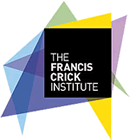About the Project
This 4-year PhD studentship is offered in Dr George Kassiotis’s Group based at the Francis Crick Institute (the Crick), Prof Uta Griesenbach’s Group based at Imperial College London and Dr Eric Alton’s Group based at Imperial College London.
Viral infections typically elicit strong immune responses that are vital for the survival of the host. Nevertheless, many viruses, particularly the ones that can achieve persistent infection, such as retroviruses, have evolved powerful immune evasion mechanism. Viral persistence in the host is also a characteristic that is being utilised as a means to deliver genetic material to the host. In these instances, host immunity against the viral vector is undesirable as it reduces the efficiency of gene transfer, and therefore of the potential therapeutic effect.
Over the last 15 years we have brought together the 3 major UK teams focused on cystic fibrosis gene therapy, undertaken 6 early phase trials, and recently completed a Phase IIb clinical trial showing, for the first time, that non-viral gene transfer is able to stabilise cystic fibrosis (CF) lung disease (1). In parallel, we have developed a novel lentiviral vector, pseudotyped with the F and HN proteins from Sendai virus (F/HN-LV) to allow efficient transduction of airway epithelial cells, the target cells for CF gene therapy. In contrast to other commonly used viral gene transfer agents (e.g adenovirus and adeno-associated virus), we and others have shown that lentiviral vectors can be repeatedly administered to the lung without loss of efficacy (2-4). In addition, a single dose of the vector achieves stable gene expression for the life-time of a mouse (~2 years) and no toxicity (acute or chronic) that would prevent translation into clinical trials (3+4) has been seen. These data supports progression into a first-in-man CF trial, due to start in late 2017, for which funding has been obtained.
It is currently unclear why lentiviral vectors retain the unique feature of efficacy on repeated administration to the lung. It is conceivable that either (a) no immune response is induced or (b) that the vector is able to evade the immune system. Interestingly, we have already shown that administration of F/HN-LV induces serum neutralising antibodies (as measured by an in vitro transduction inhibition assay), but these do not affect transduction efficiency in the murine lung in vivo. Although lentiviral vectors have been used in a range of disease indications, strategies are largely based on single administration for ex vivo transduction of bone marrow-derived stem cells and there is a paucity of immunological studies.
This project aims to study F/HN-induced immune responses in more detail. Specifically we will (a) study F/HN-induced immune responses in ex vivo and in vivo pre-clinical models and (b) compare responses in these pre-clinical models to responses in man. Clinical trial samples will be obtained from the first-in-man F/HN-LV trial described above. In addition, (c) the project will assess whether alteration of virus-induced interferon or other host responses affect transduction efficiency, to further improve vector potency.
A joint studentship between the Crick Institute and the National Heart and Lung Institute at Imperial College provides internationally-leading expertise in retroviral immunology and pulmonary gene transfer, respectively, to support this project.
Talented and motivated students passionate about doing research are invited to apply for this PhD position. The successful applicant will join the Crick PhD Programme in September 2017 and will register for their PhD at Imperial College London.
Applicants should hold or expect to gain a first/upper second-class honours degree or equivalent in a relevant subject and have appropriate research experience as part of, or outside of, a university degree course and/or a Masters degree in a relevant subject.
APPLICATIONS MUST BE MADE ONLINE VIA OUR WEBSITE BY 12NOON GMT NOVEMBER 14TH 2016. APPLICATIONS WILL NOT BE ACCEPTED IN ANY OTHER FORMAT.
https://www.crick.ac.uk/about-us/jobs-and-study/phd-programme/
Funding Notes
Additional eligibility criteria apply to this position: As well as meeting the standard eligibility criteria, applicants to this position will be expected to hold either a 4-year undergraduate/MSci degree (at 2.1 level or higher), or a 3-year undergraduate degree plus a Masters degree passed with Merit. Non-EU applicants are not eligible for the funding for this projects.
References
1. Alton, E. W. et al. Cystic Fibrosis Gene Therapy Consortium (2015)
Repeated nebulisation of non-viral CFTR gene therapy in patients with cystic fibrosis: a randomised, double-blind, placebo-controlled, phase 2b trial.
Lancet Respiratory Medicine 3: 684-691.
2. Mitomo, K., U. Griesenbach, M. Inoue, L. Somerton, C. Meng, E. Akiba, T. Tabata, Y. Ueda, G. M. Frankel, R. Farley, C. Singh, M. Chan, F. Munkonge, A. Brum, S. Xenariou, S. Escudero-Garcia, M. Hasegawa and E. W. Alton (2010)
Toward gene therapy for cystic fibrosis using a lentivirus pseudotyped with Sendai virus envelopes.
Molecular Therapy 18: 1173-1182.
3. Griesenbach, U., M. Inoue, C. Meng, R. Farley, M. Chan, N. K. Newman, A. Brum, J. You, A. Kerton, A. Shoemark, A. C. Boyd, J. C. Davies, T. E. Higgins, D. R. Gill, S. C. Hyde, J. A. Innes, D. J. Porteous, M. Hasegawa and E. W. Alton (2012)
Assessment of F/HN-pseudotyped lentivirus as a clinically relevant vector for lung gene therapy.
Am J Respir Crit Care Med 186: 846-856.
4. Sinn, P. L., A. C. Arias, K. A. Brogden and P. B. McCray, Jr. (2008)
Lentivirus vector can be readministered to nasal epithelia without blocking immune responses.
Journal of Virology 82: 10684-10692.

 Continue with Facebook
Continue with Facebook

